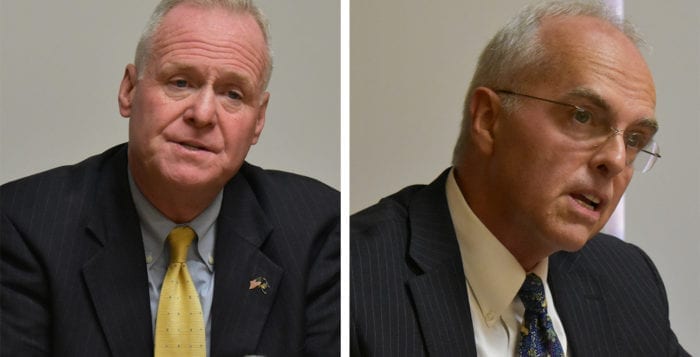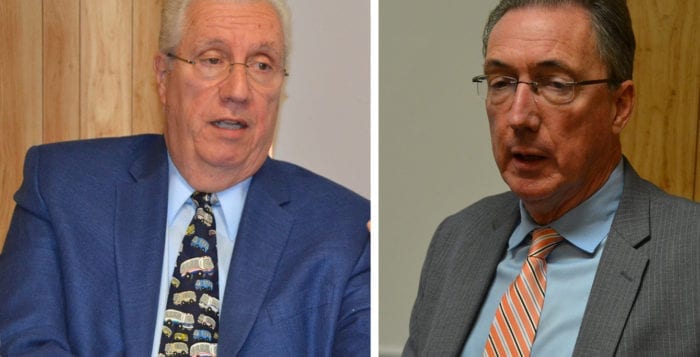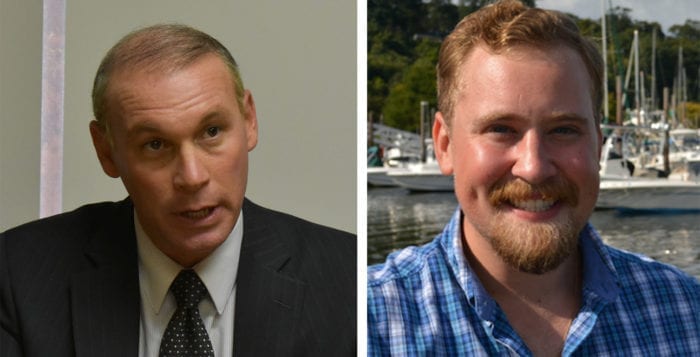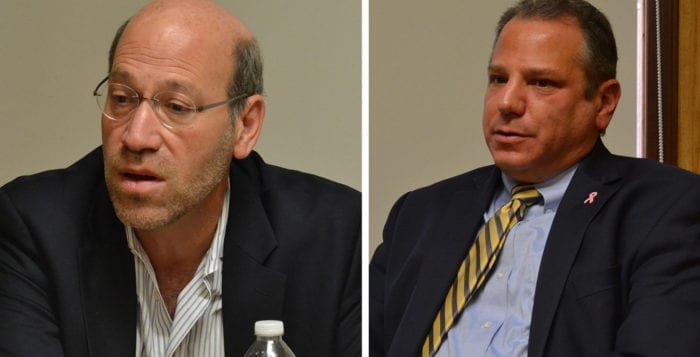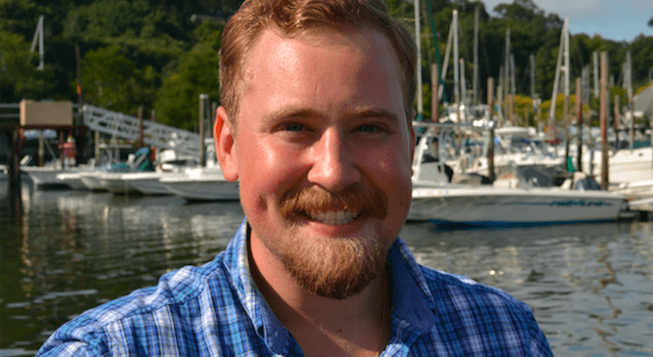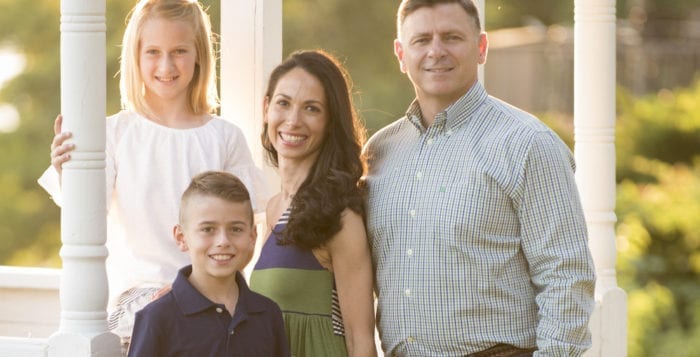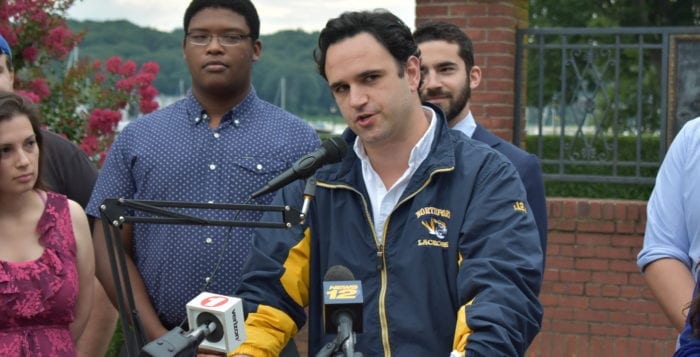The two candidates running for New York’s 8th Assembly District, incumbent Mike Fitzpatrick (R-Smithtown) and Democratic challenger Dave Morrissey, agree on the area’s problems of high taxes and shrinking youth population. However, they disagree heavily on how the state should work to change it.
Fitzpatrick and Morrissey stepped into the TBR News Media offices where they discussed their varying stances on state and local issues.
Fitzpatrick is running again for his long-held seat on a number of fiscal issues, including
taxes, young people leaving Long Island and cutting back on government employee’s benefits.
“Unfortunately, when you look at the numbers, we continue to be a state in decline. We’re losing 100,000 people a year,” he said.
Morrissey, a local software engineer and project manager from Smithtown, is running heavily on reforming New York’s response to the opioid crisis. This comes after a personal tragedy where Morrissey’s son William died of complications due to opioid addiction in 2016.
“He wasn’t one of the statistics because he didn’t die over an overdose death, and there are many more deaths than most often reported because of this,” the Democratic challenger said. “All levels of government need to do more.”
Taxes/Cost of Living
Fitzpatrick sees a need to deal with union contracts and government employee pension programs, which he said is sapping the strength out of the economy. The assemblyman has campaigned to change automatic pay increases while employers and employees are in between labor contracts as well as pushing for a transition from pensions for 401(k)s for government employees.
“The tax burden is too high,” the assemblyman said. “You have to get every elected official out of the defined benefit retention system. That particular benefit and how we are compensated encourages fiscal irresponsibility.”
The Democratic challenger said that while his campaign has received union support, he would still push for school consolidation of resources. He opined best way to affect the school district’s taxes was to expand Long Island’s commuter infrastructure to appeal to young people and, hopefully, encourage new business growth.
“We need to have smart strategic investments that will have a real cost benefit,” Morrissey said. “If the only thing you have is a hammer everything looks like a nail, and you can’t cut your way into prosperity.”
Health care/Opioid crisis
On the opioid treatment and health care, the challenger said there needs to be much more done on the state level. He supports medically assisted treatment for all drug or alcohol users who need it, opening up an addiction high school through the BOCES system, and opening up at least 11 more recovery centers, for which he suggests the state should get pharmaceutical companies to pay.
The incumbent said he feels it would be near impossible to get the pharmaceutical companies to pay for these programs, while agreeing it would help, he said funding from state government is never guaranteed.
Morrissey said he also believes in health care for all and supports the New York Health Act, which passed through the state Assembly but did not reach the floor of the state Senate. He said he would look to give the state more negotiatinpower with pharmaceutical companies.
“I think it’s a great system that needs improvements — something rolled out gradually,”
Morrissey said. “Big pharma has so much wealth, we should be able to negotiate on the process.”
Fitzpatrick said he disagrees with a health care for all program, and especially the New York Health Act. He would instead advocate for use of Health Savings Account programs, one where people can save money for health-related emergencies only.
“The system is not broken — it needs to be repaired and modified,” he said. “You want a system that attracts the best and the brightest doctors.”

